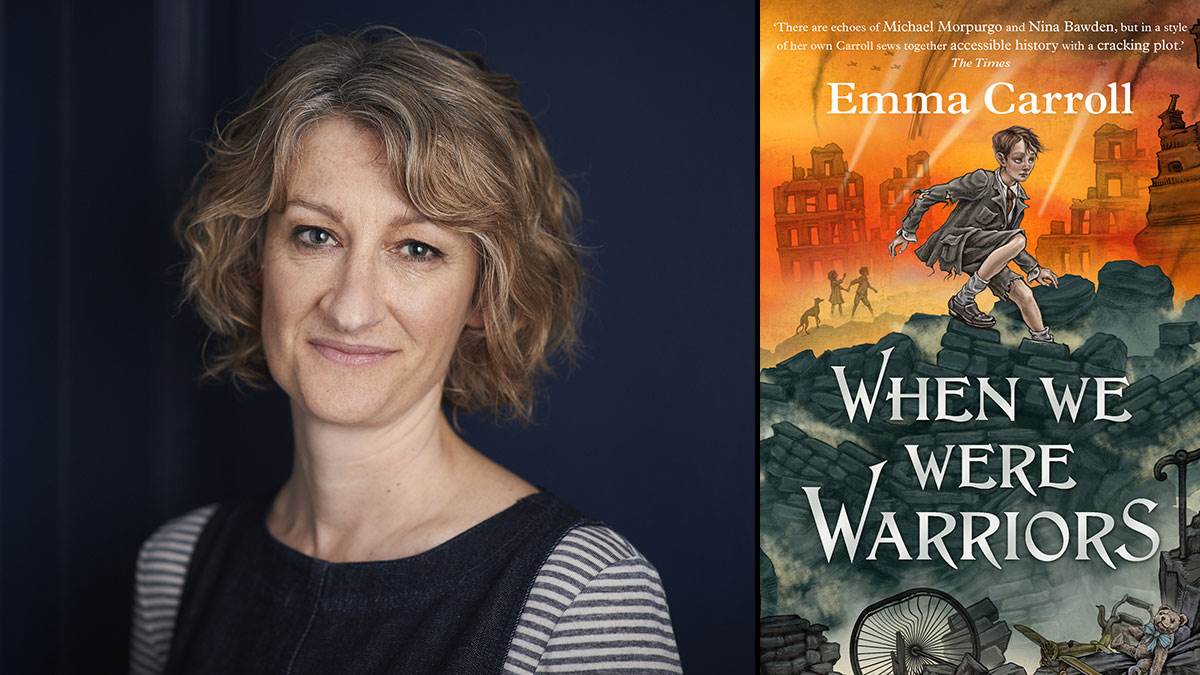'Opening our eyes': Why war stories are so important for children
Published on: 20 February 2019 Author: Emma Carroll
When We Were Warriors author Emma Carroll explains why it's so important that children have war stories to read - and what they can learn from them.

Today, as I write this, it's Holocaust Memorial Day. A rare film clip of Anne Frank leaning out of her apartment window is being retweeted thousands of times on Twitter.
And I'm glad, because over on the BBC news website are the stark findings of a recent survey, showing that 5% of UK adults don't believe the Holocaust happened; almost two thirds of those questioned didn't know how many people had died under the Nazi regime.
The answer is six million - and that's the Jews. Add in Roma and Slavic people, gay people, black people, the mentally ill, those with disabilities, political opponents, Jehovah's witnesses and the figure nears 17 million.
This is why war stories are relevant to today's readers. 5% of adults denying the Holocaust is far, far too many.
The beginnings of World War II has its roots in the hatred and propaganda stirred up by politicians, wanting to blame certain ethnic groups for society's problems. We need to learn from these mistakes, not repeat them.
It's a message that comes over time and again in these powerful clips from Newsround of children hearing about the Holocaust first-hand from grandparents who survived.
How books can raise our awareness
When We Were Warriors is set in World War II, but the effects of current wars are felt every day around the world. Many - Syria, Afghanistan - are frequently in the news; others - long-running and bloody conflicts in places such as Columbia, Kashmir, the Western Sahara - we hear little of.
What we do know is that wars displace people, and that those people are often society's most vulnerable: the elderly, the poor, the children. Wars create refugees, people unable to carry on living in their homes or towns because of violence.
Books and stories are a way of opening our eyes and of raising our awareness. The Bone Sparrow by Zana Fraillon highlights the plight of the Rohingya people in Myanmar, which is now said to be the world's fastest growing refugee crisis.
In World War II, displaced children were called 'evacuees' or 'kindertransport' and welcomed into our homes. Parallels between this and our current refugee crises are obvious and may well be why WWII stories have become popular again. Sometimes seeing the world through history's 'spectacles' gives us a clearer insight into the world around us.
Connecting emotionally to stories
As well as being socially and politically relevant, war stories carry a huge emotional resonance for readers. In them, characters are often dealing with loss: a parent, a sibling, a friend, a pet, or something less tangible, like home, or their past.
Conflict will often bring about sudden, dramatic upheaval. Yet in facing change, it's possible for youngsters to facilitate change in others: Nina Bawden's Carrie's War being a brilliant example, where evacuee Carrie helps to heal an old rift within the family into which she's taken.
A more recent story which does this is The Boy at the Back of the Class by Onjali Q Rauf, where the arrival of a young Syrian refugee helps school children learn important lessons in empathy and kindness.
Why war stories still matter today
War stories are as relevant today as they ever were, maybe more so. I'm not talking about the cosy nostalgia of 'make do and mend' and ration books, though these snippets of living history make for great story fodder and help our understanding of the past.
What I mean is the sad reality that war is ever present in our lives, because the nature of conflict has changed. Yet untangle all the prejudice and misunderstandings, and the reasons people take up arms against each other doesn't change. It starts, in the beginning, with hate.
What stories do is help us realise that differences can be overcome. They give us hope.
Topics: Coming-of-age, Historical, Classics, War, Politics/human rights, Refugees/asylum, Features





Add a comment